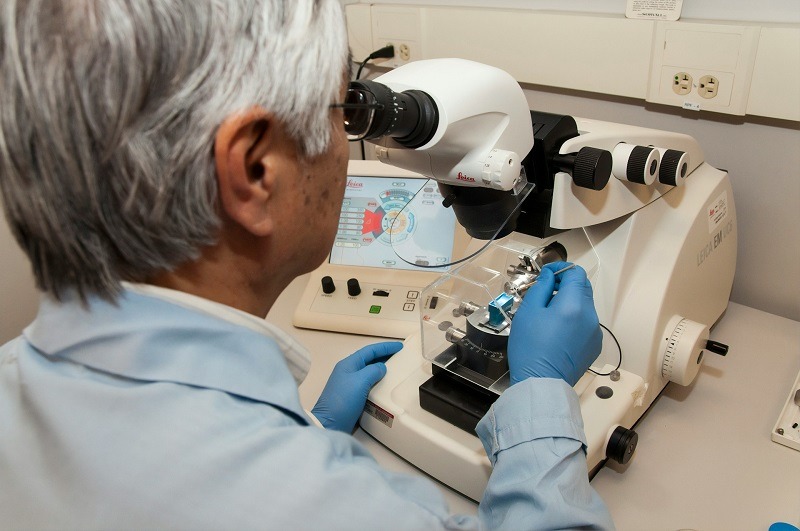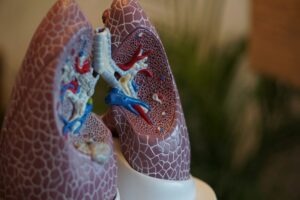AstraZeneca and Daiichi Sankyo have submitted a new biologics license application (BLA) to the US Food and Drug Administration (FDA) seeking accelerated approval for datopotamab deruxtecan (Dato-DXd) to treat non-small cell lung cancer (NSCLC).

Discovered by Daiichi Sankyo, Datopotamab deruxtecan was co-developed by the company along with AstraZeneca. Credit: National Cancer Institute on Unsplash.
Subscribe to our email newsletter
The BLA is sought for treating NSCLC patients with locally advanced or metastatic epidermal growth factor receptor-mutated (EGFR) who have received systemic therapies previously.
Concurrently, the companies have chosen to withdraw their previous BLA for the therapy in the US.
The strategic decision for the new submission and the withdrawal of the previous application came from the feedback after consultations with the FDA.
The BLA submission is based on outcomes from Phase II TROPION-Lung05 trial and backed by findings from Phase III TROPION-Lung01 and Phase I TROPION-PanTumor01 trials.
TROPION-Lung05 involved 137 patients across Europe, Asia, and North America.
AstraZeneca Oncology R&D executive vice-president Susan Galbraith said: “TROPION-Lung01 was designed to test the potential to improve upon standard-of-care chemotherapy in a broad, previously treated, advanced lung cancer patient population.
“The results, together with data from TROPION-Lung05, showed an especially pronounced benefit for patients with an EGFR mutation which informed our discussions with the FDA and the decision to seek accelerated approval of datopotamab deruxtecan in this patient population.
“TROPION-Lung01 has also provided exciting exploratory data supporting our biomarker development, which will be validated in ongoing and planned Phase III lung cancer trials.”
Datopotamab deruxtecan, a trophoblast antigen 2 (TROP2)-directed DXd antibody-drug conjugate (ADC), is discovered by Daiichi Sankyo and co-developed by the company along with AstraZeneca.
The collaboration is also exploring the efficacy of datopotamab deruxtecan both as a monotherapy and in combination with Tagrisso (osimertinib) in the ongoing Phase III trials, TROPION-Lung14 and TROPION-Lung15, for treating advanced or metastatic EGFR-mutated nonsquamous NSCLC.
Daiichi Sankyo R&D global head Ken Takeshita said: “Treating EGFR-mutated non-small cell lung cancer is incredibly challenging following disease progression given that the complexity and variability of these mutations often lead to resistance.
“The potential approval of datopotamab deruxtecan could offer renewed hope for patients with this formidable disease.”
 Advertise With UsAdvertise on our extensive network of industry websites and newsletters.
Advertise With UsAdvertise on our extensive network of industry websites and newsletters.
 Get the PBR newsletterSign up to our free email to get all the latest PBR
news.
Get the PBR newsletterSign up to our free email to get all the latest PBR
news.

